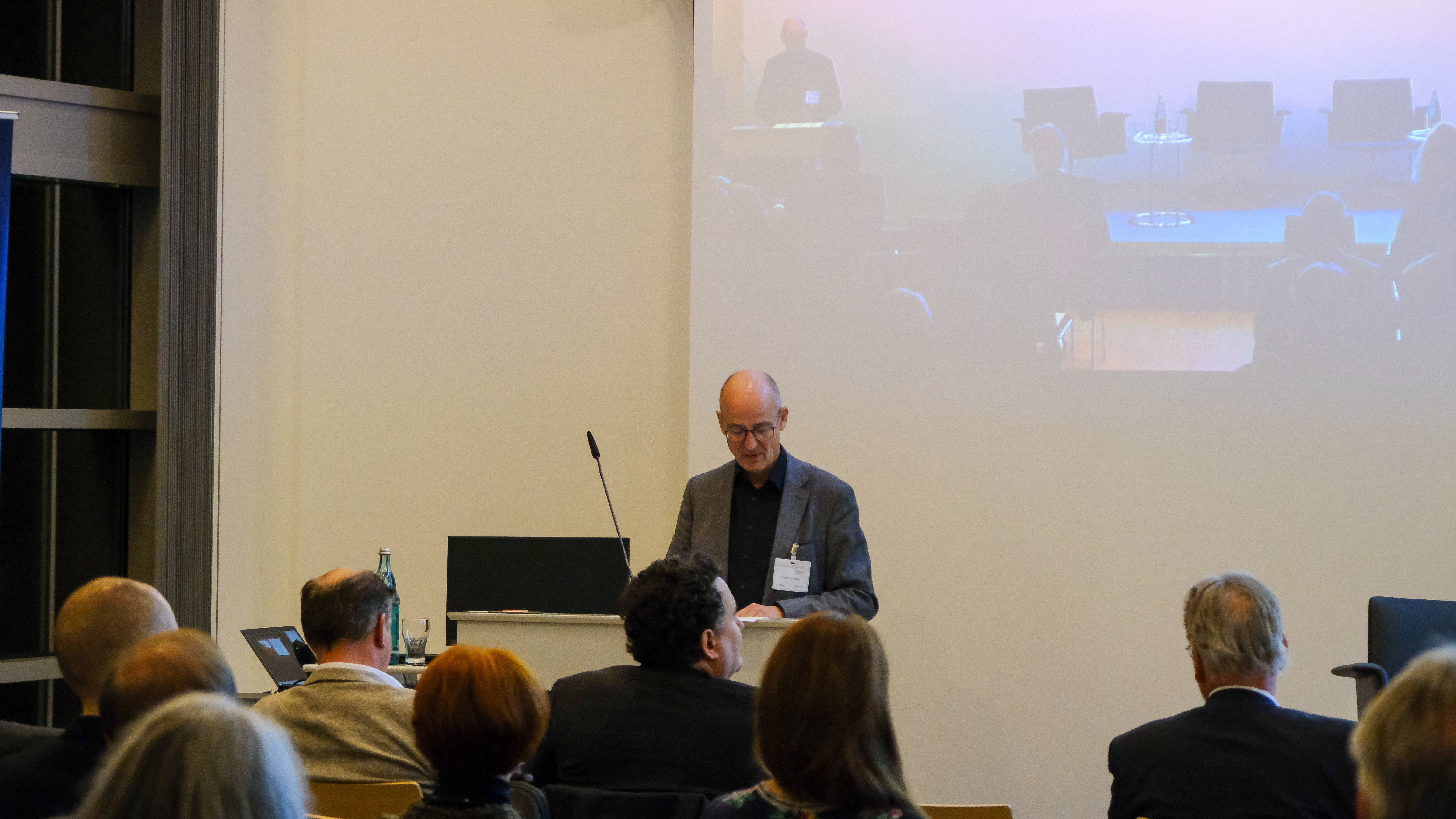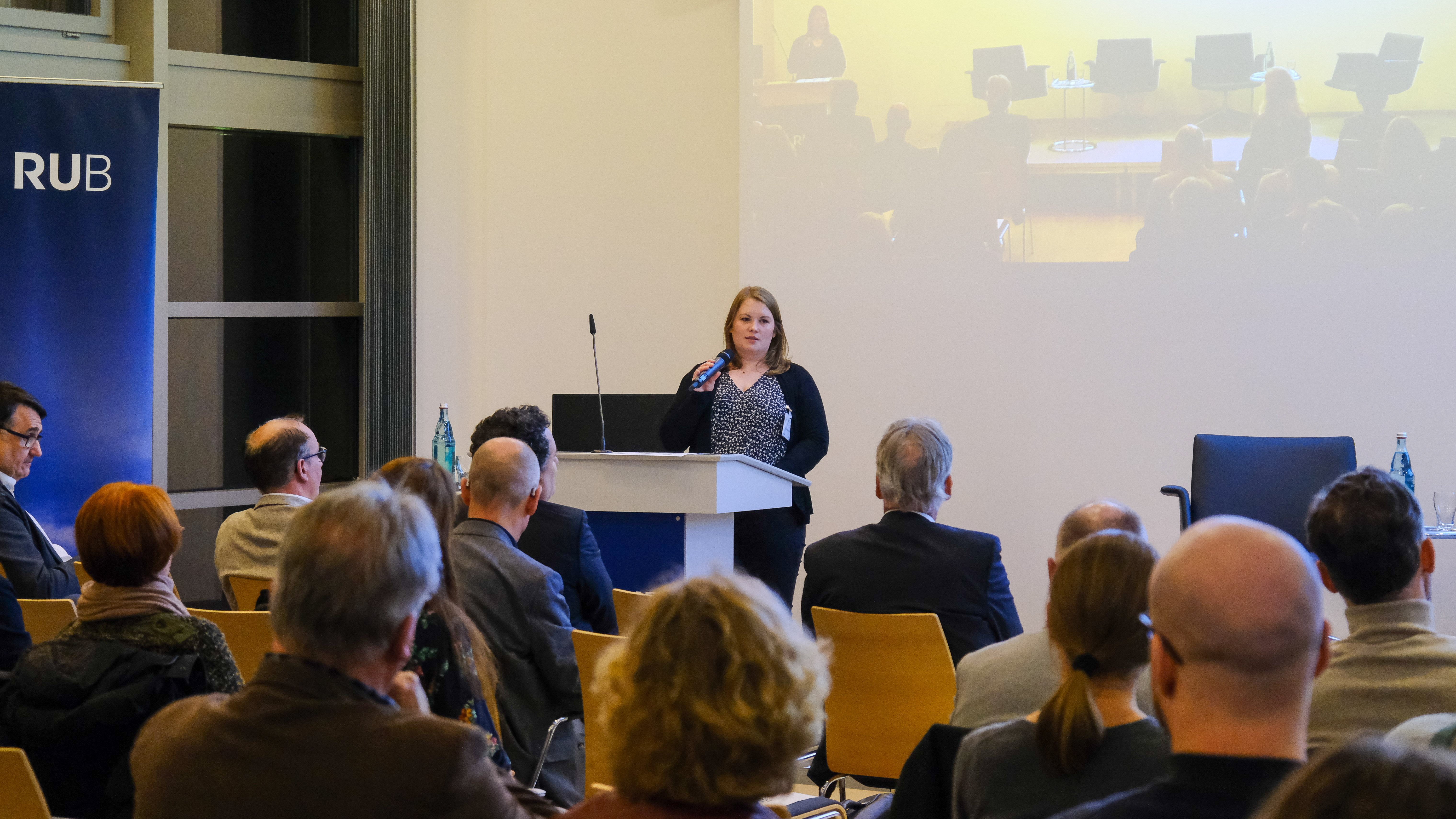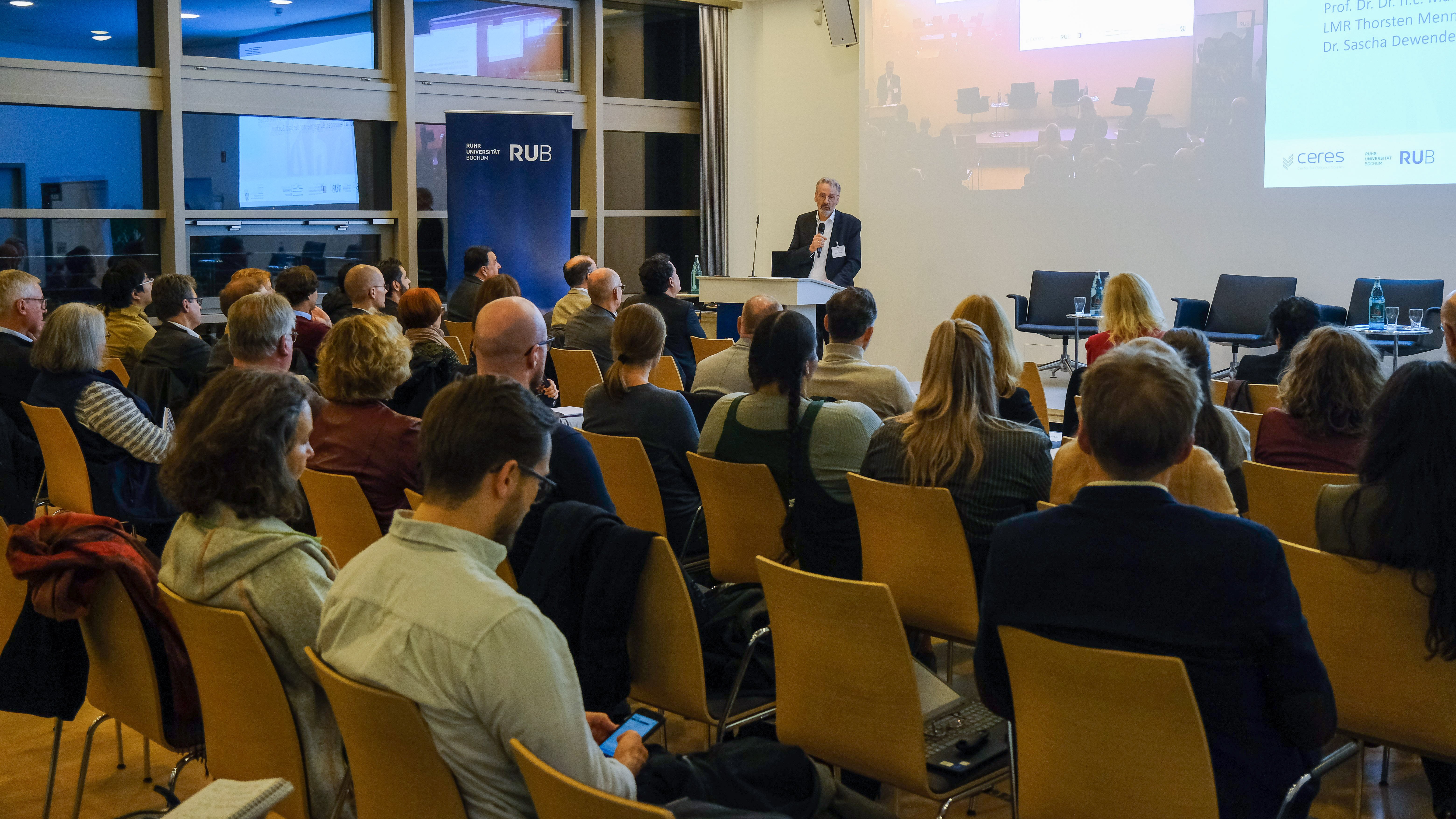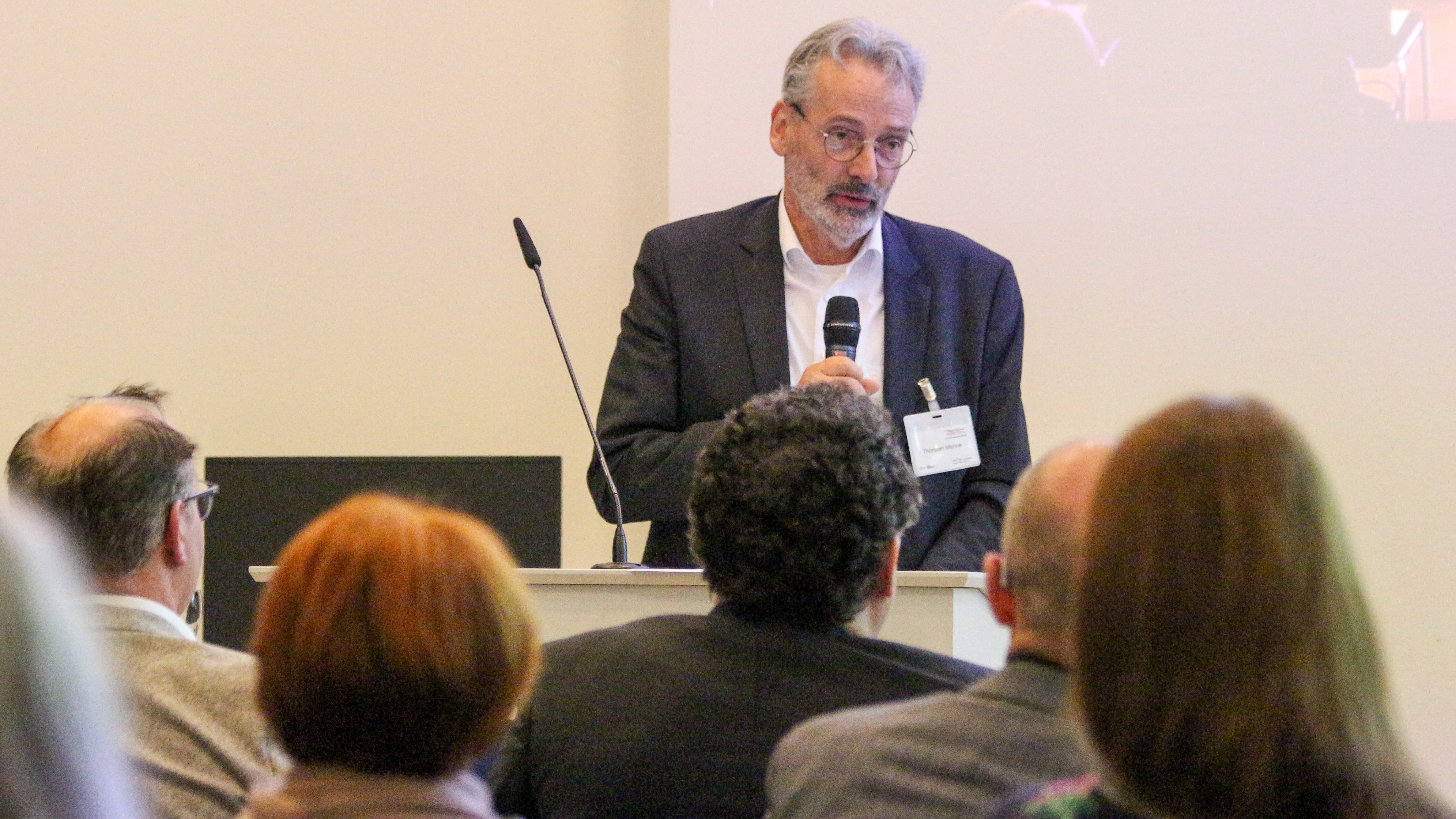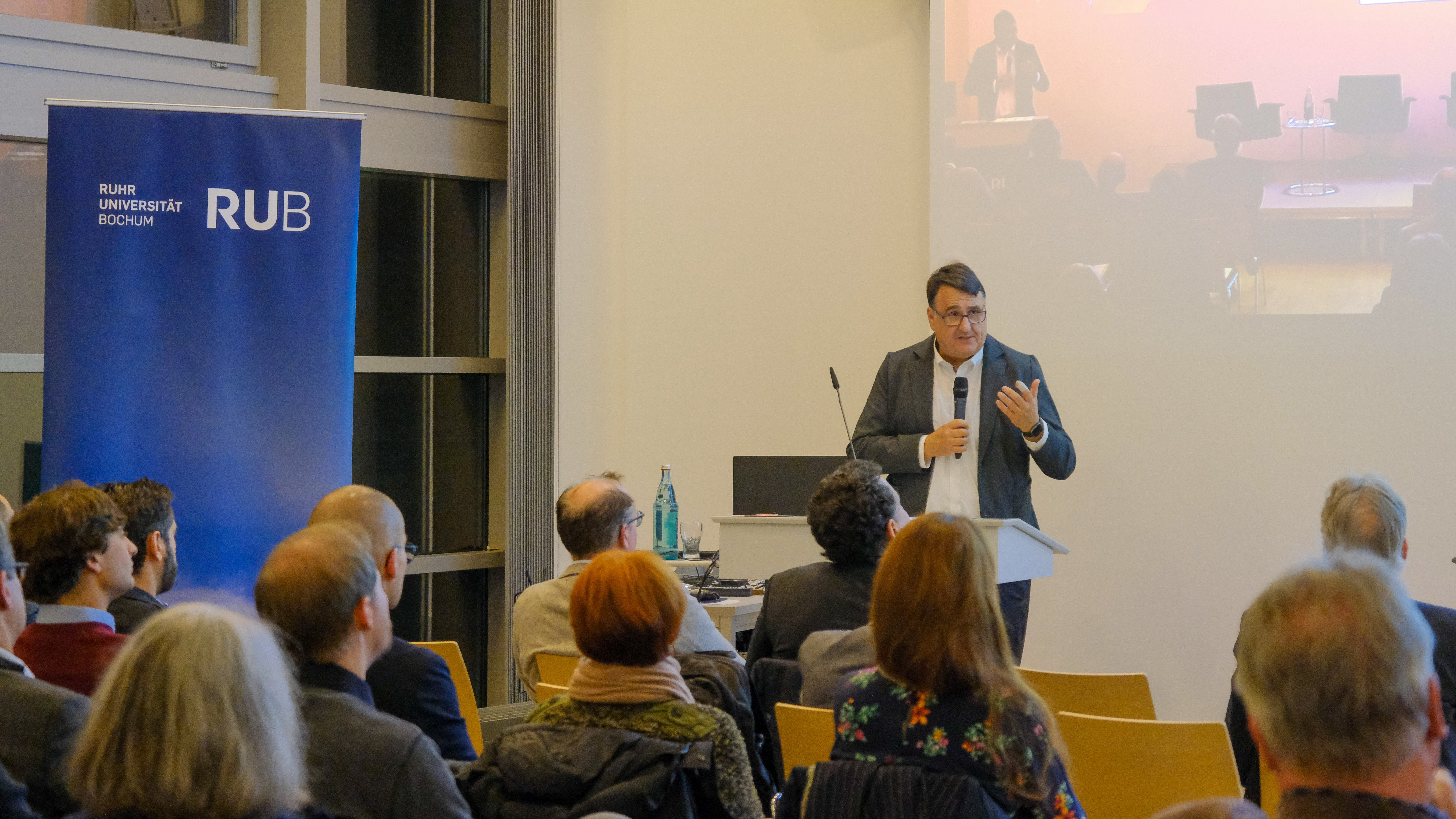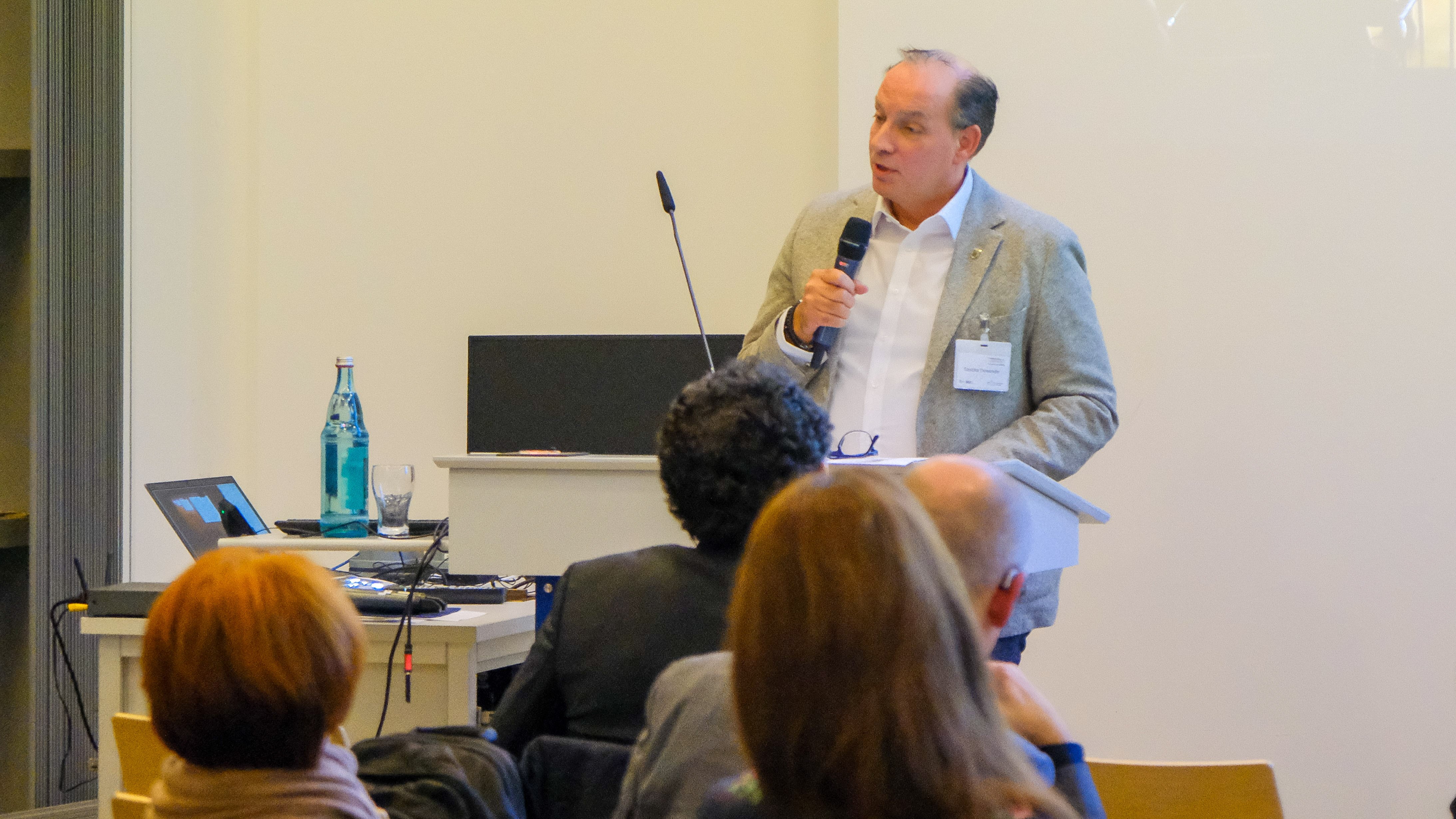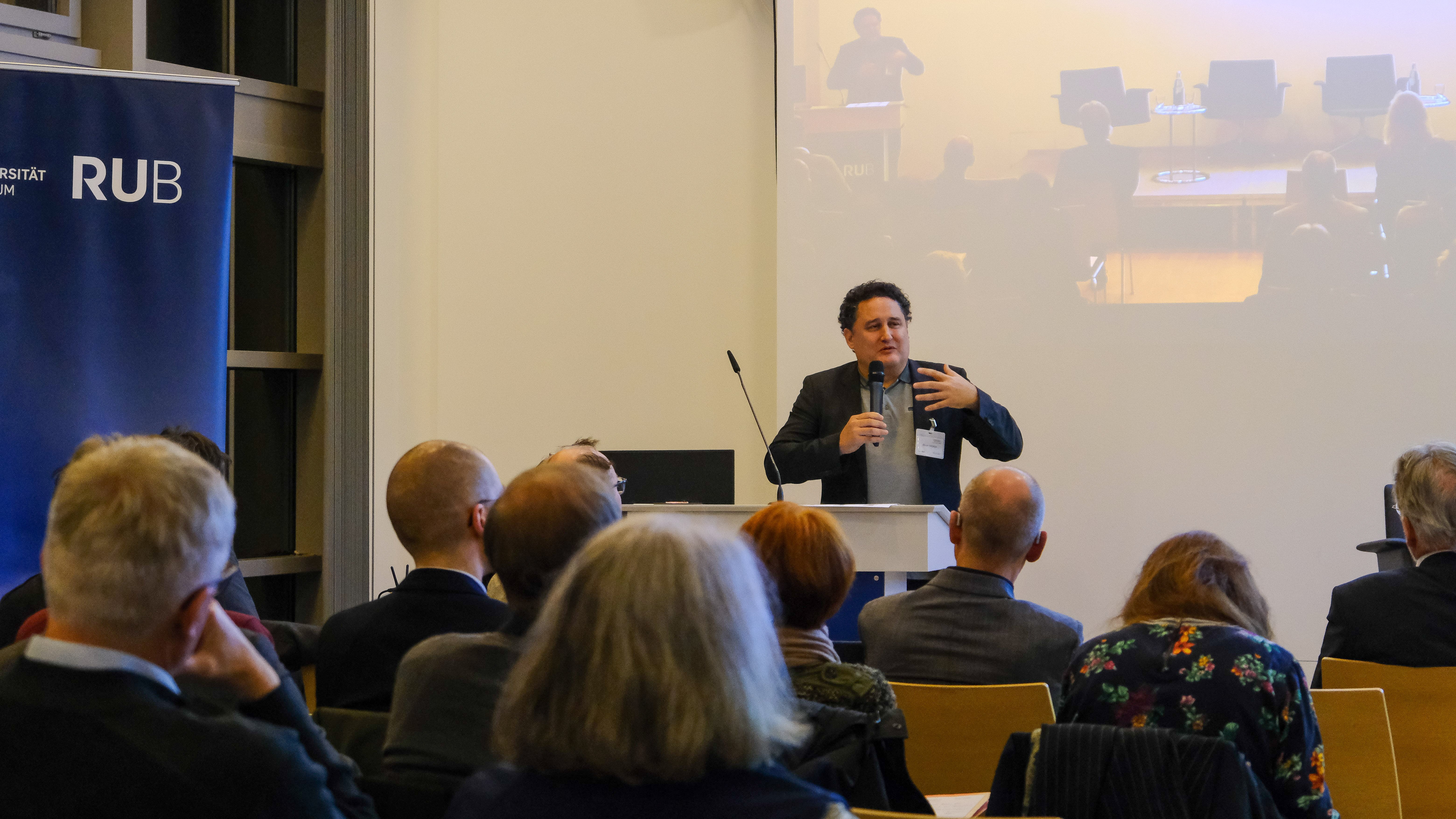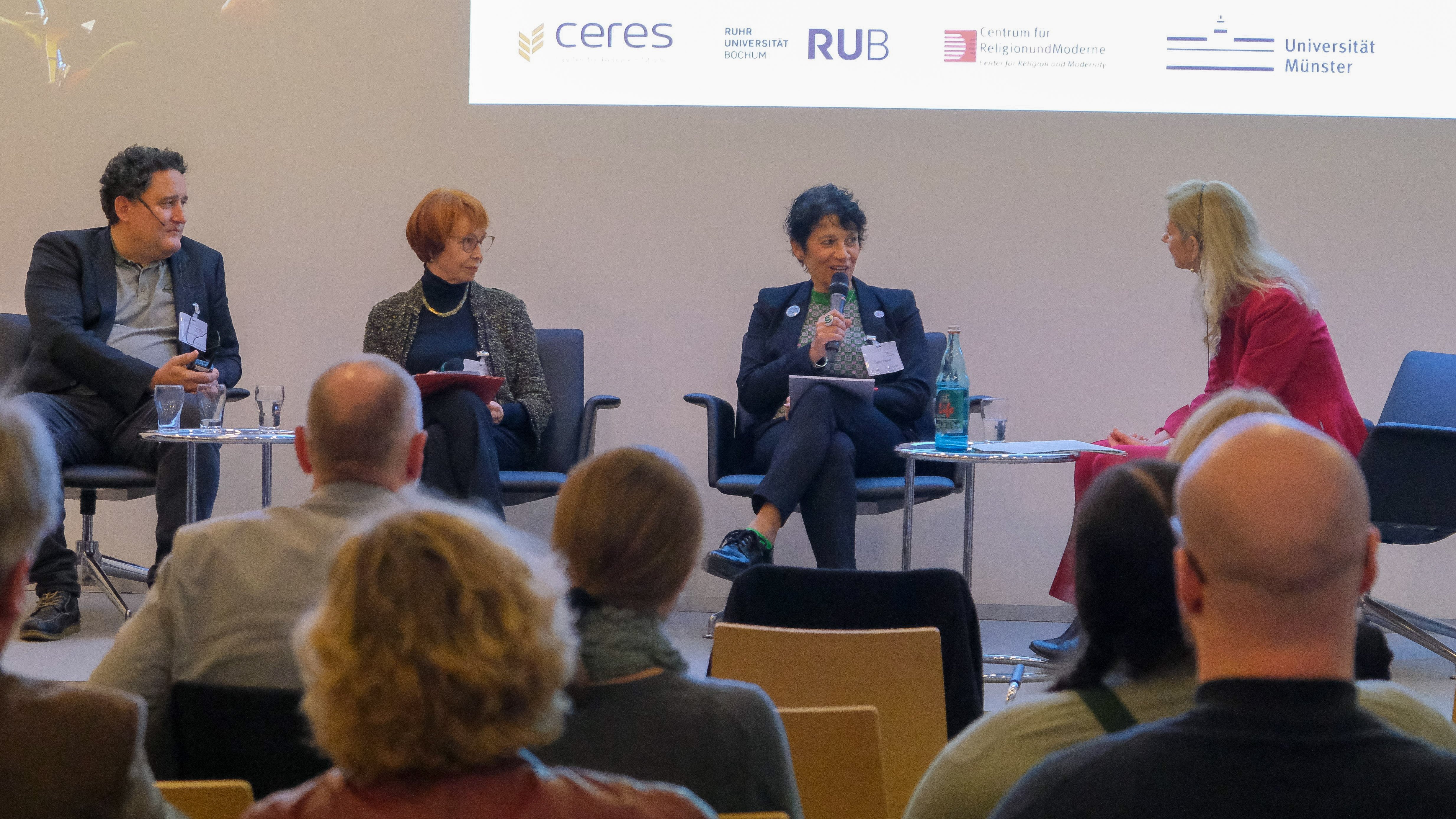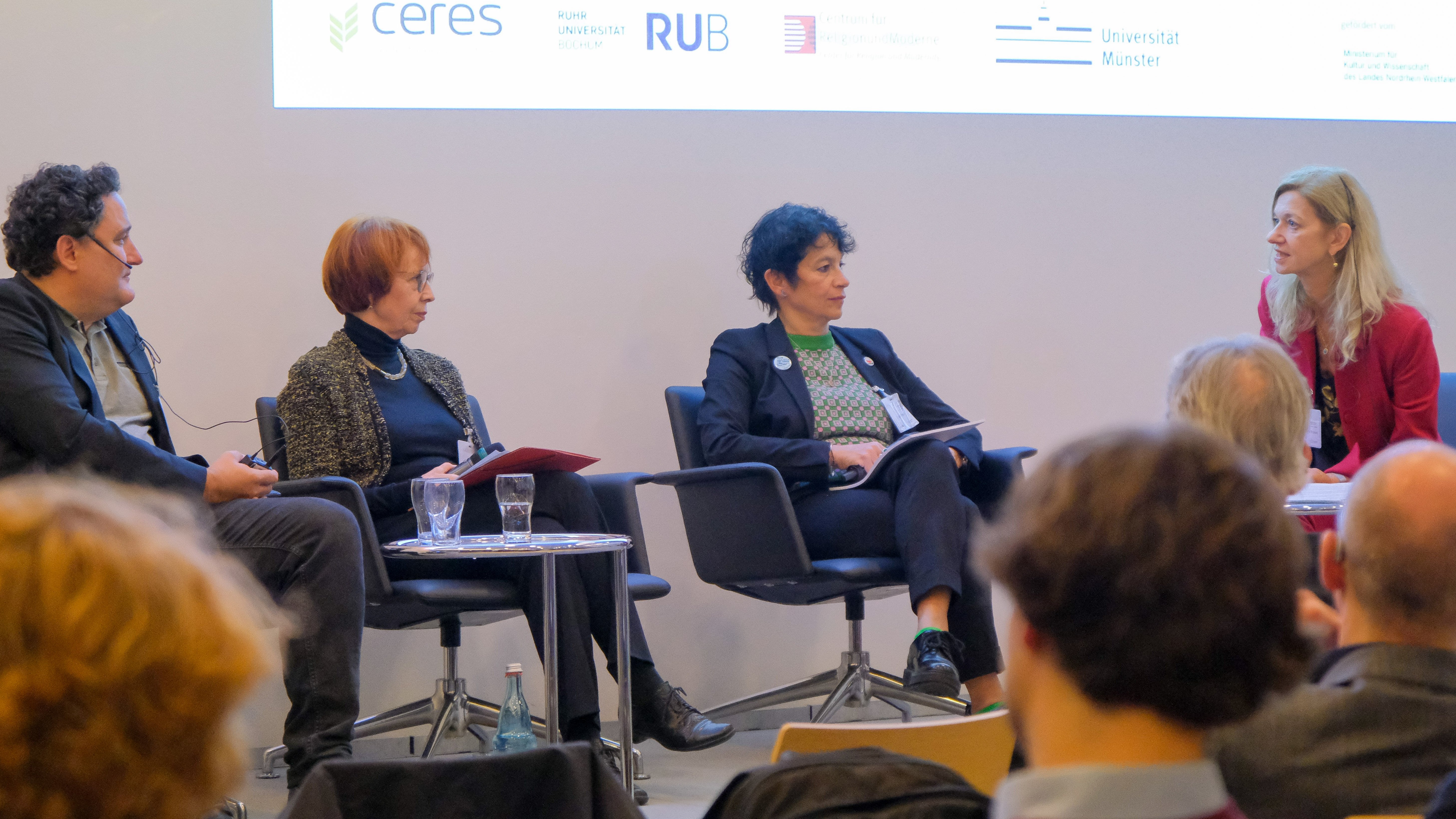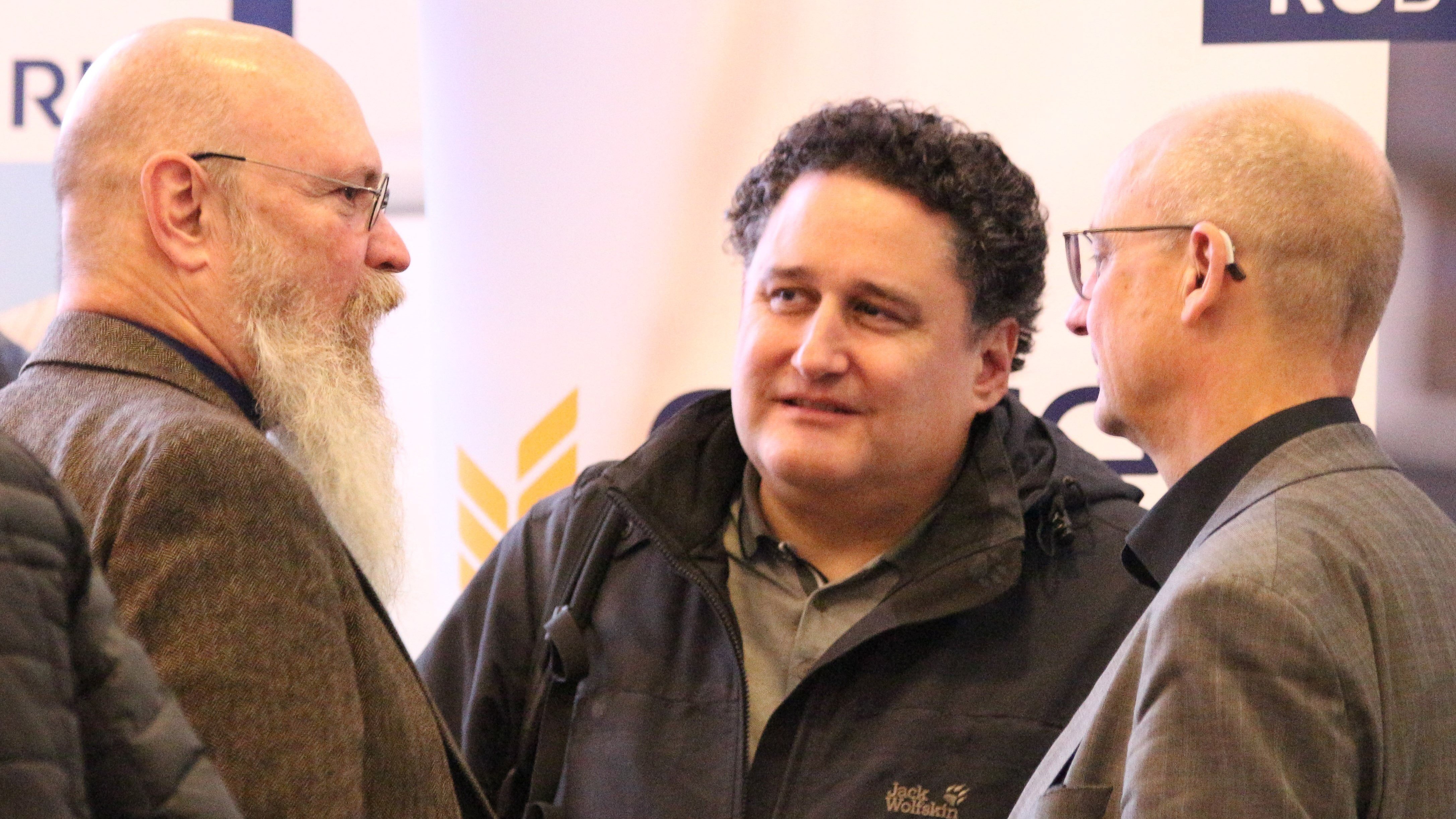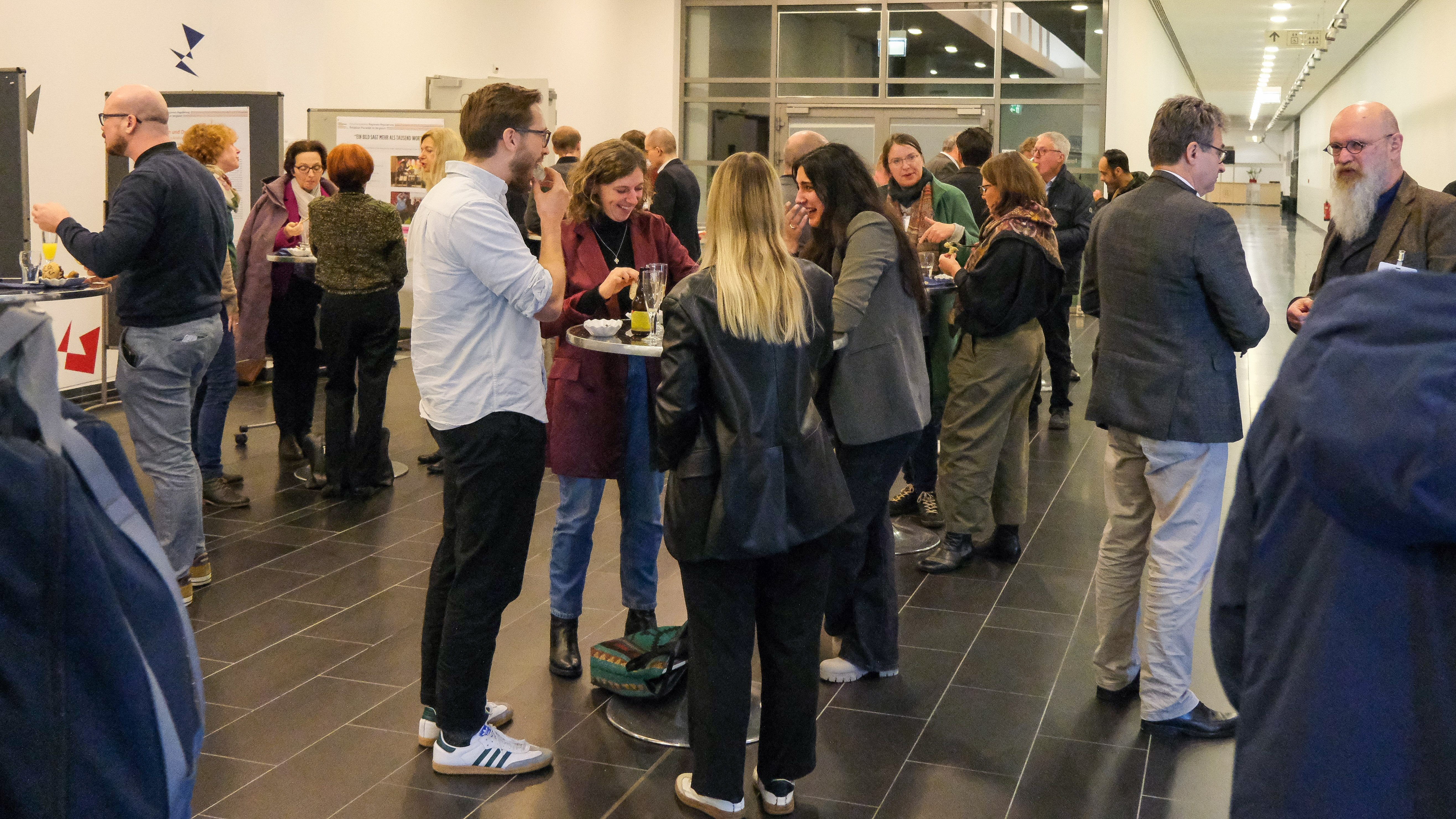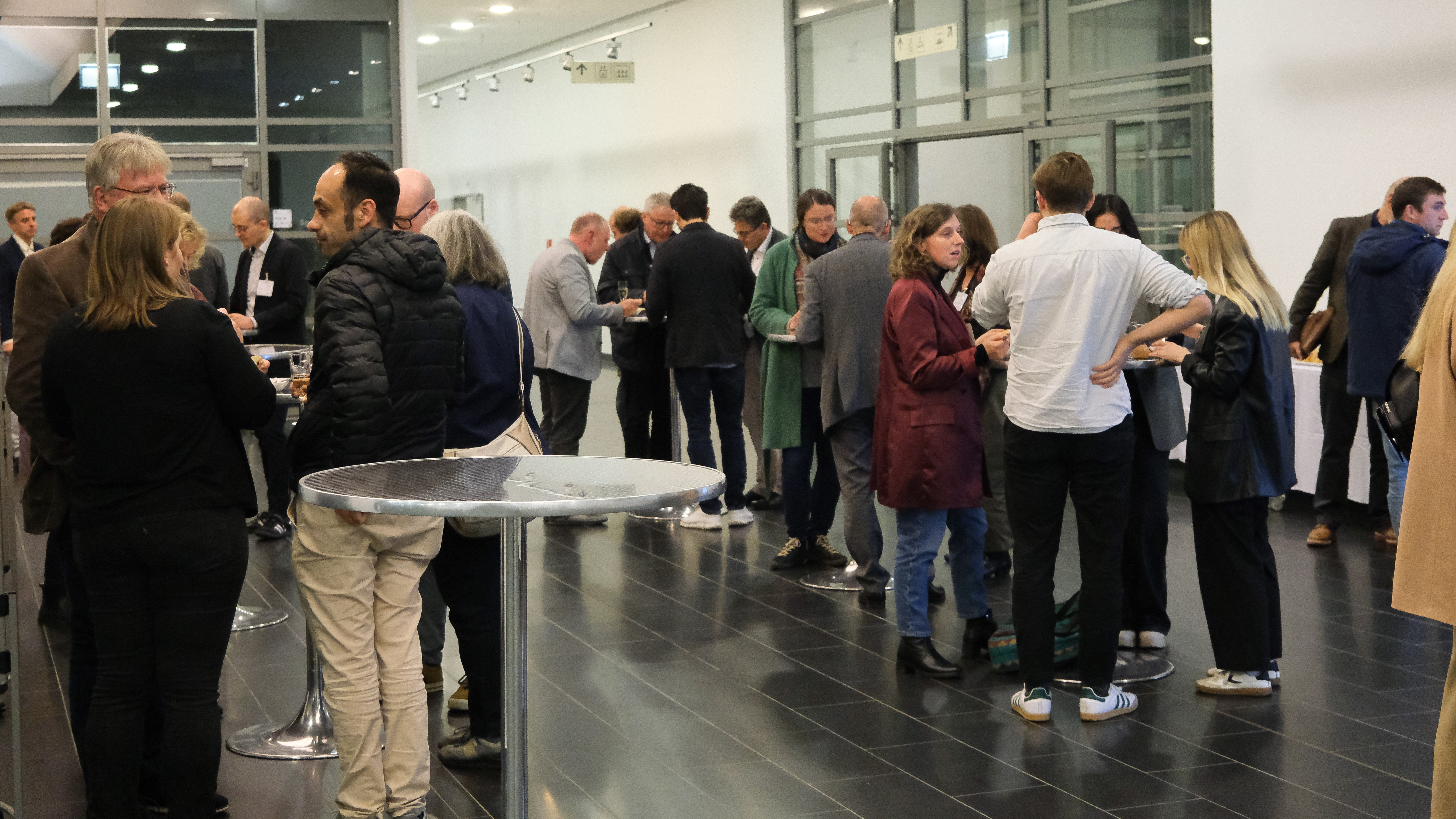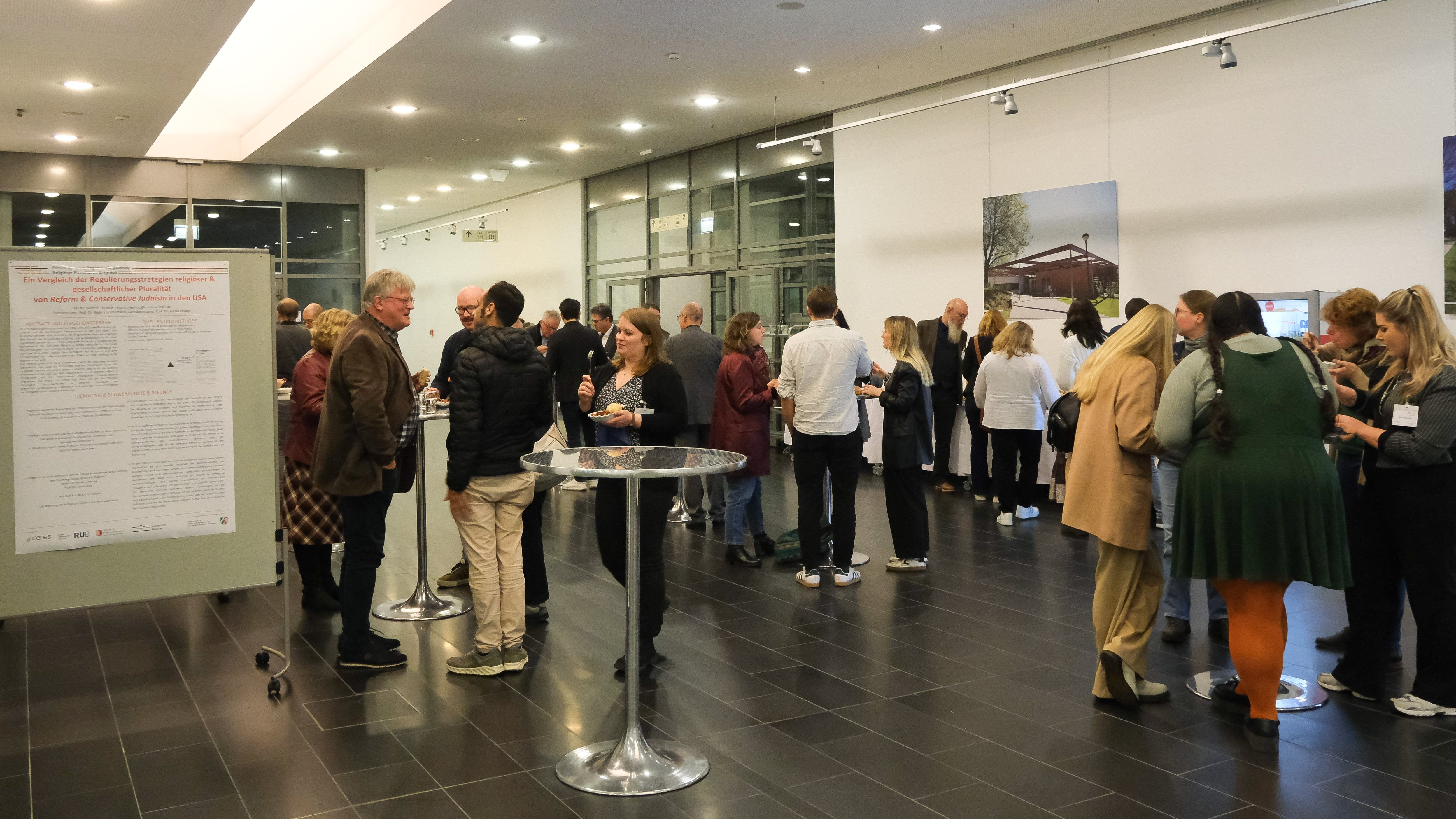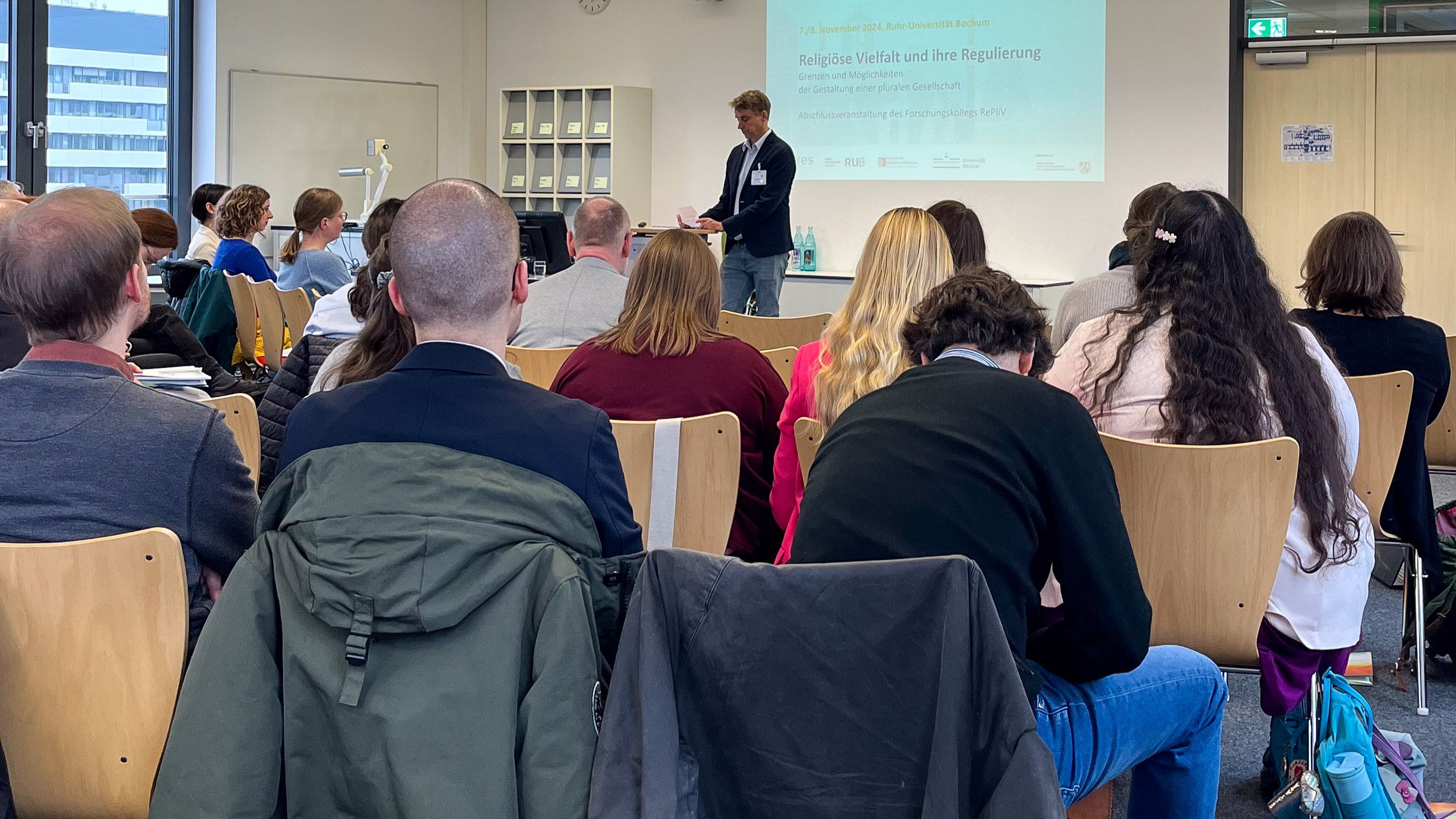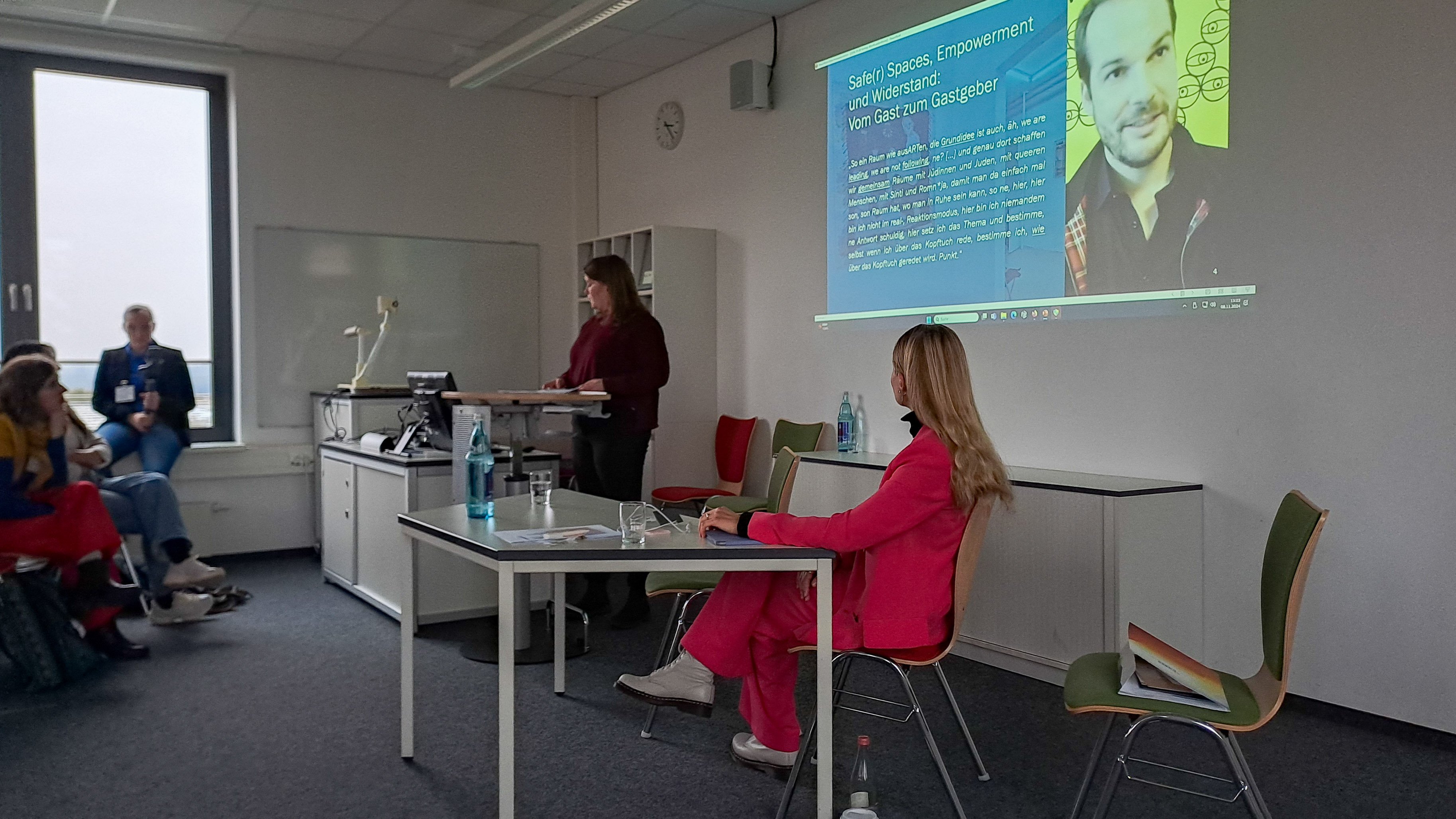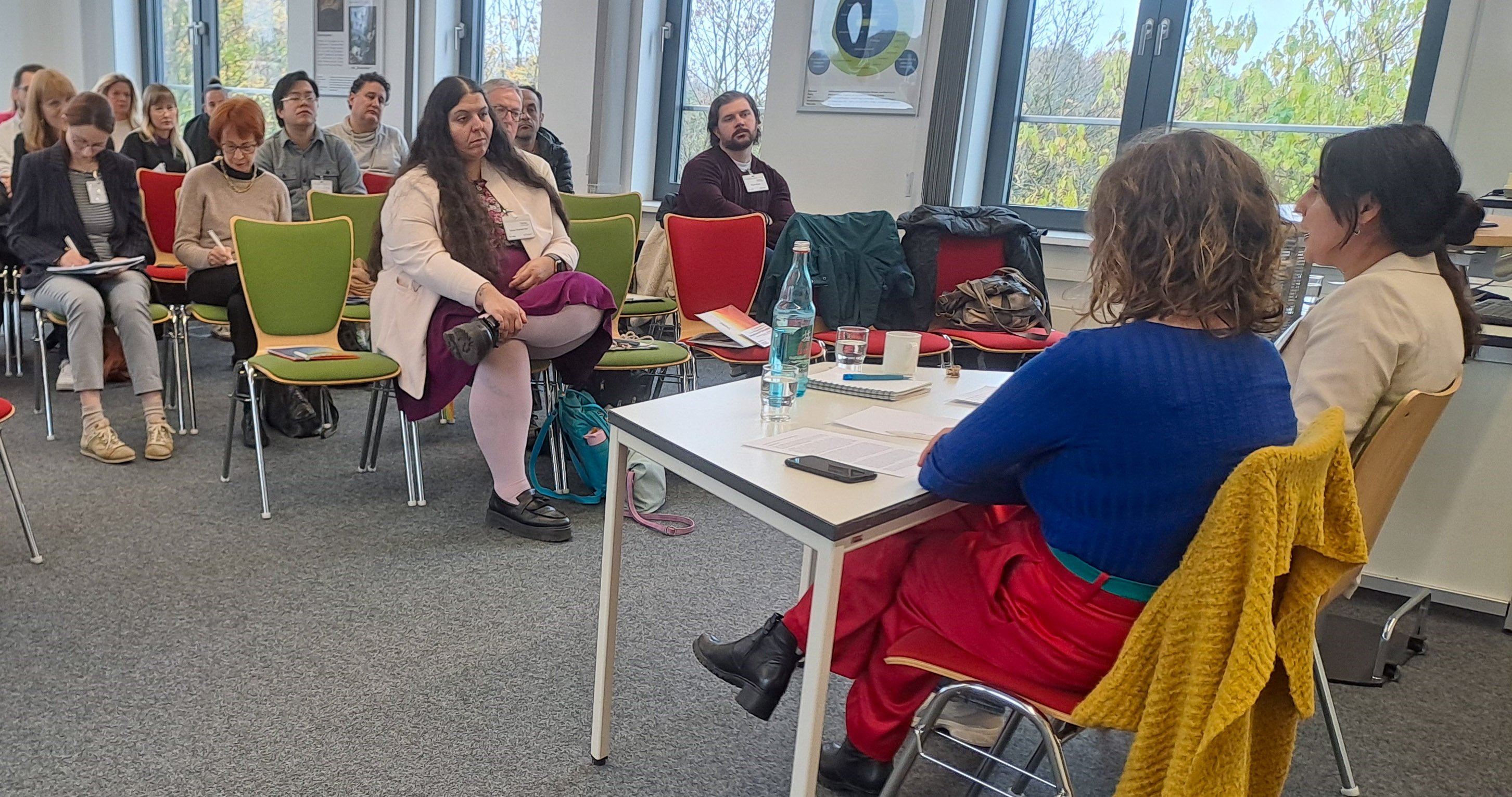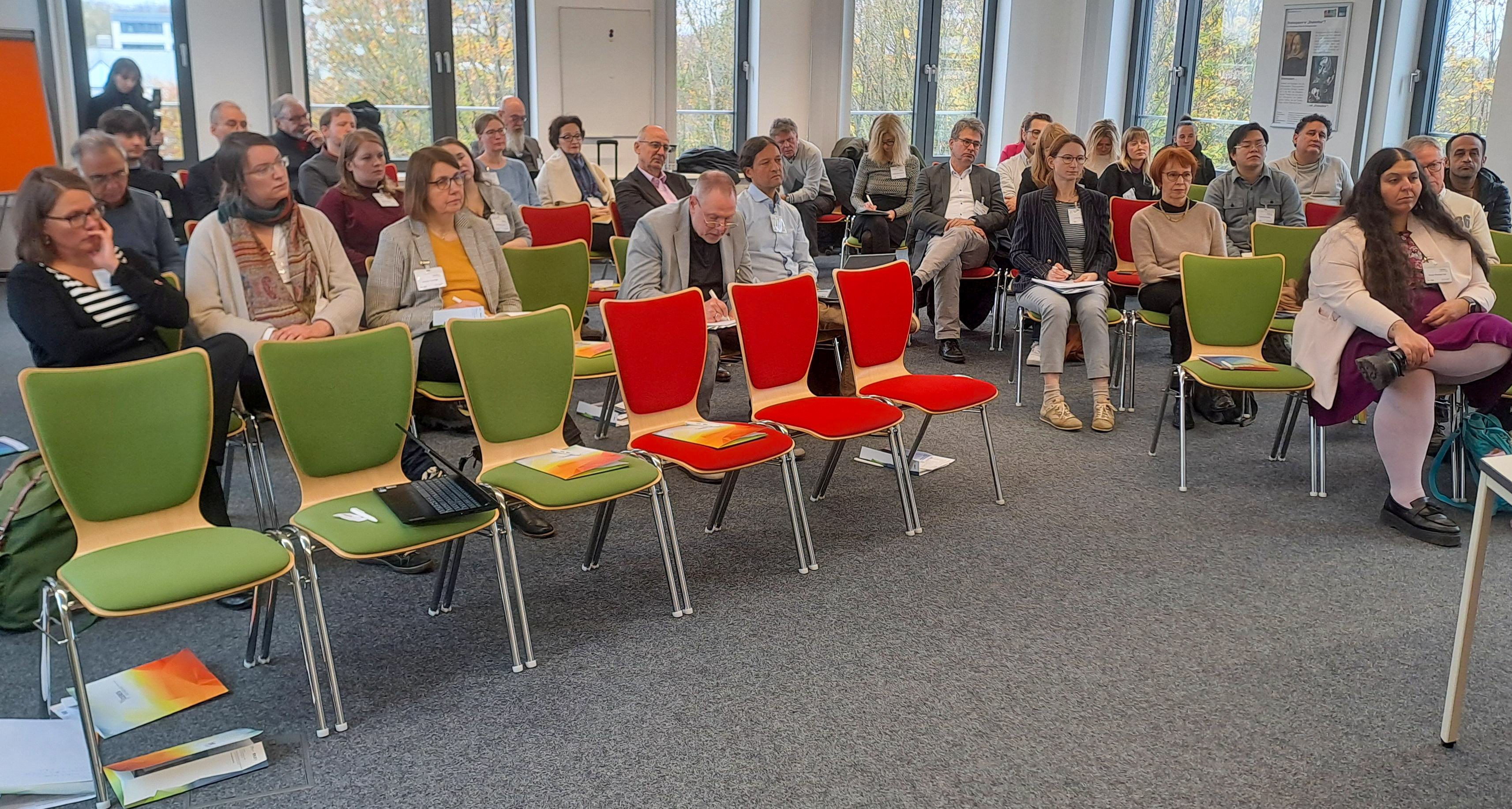
A review of the closing event of the Graduate School RePliV
On November 7 and 8, the closing event of RePliV took place in Bochum, which offered both a review of the research results and an outlook on future developments in the research field. Prof. Dr. Ulrich Willems and Mareike Ritter welcomed the attendees to the evening event on Thursday in their roles as spokesperson and representative of the doctoral students of the research group. This was followed by words of welcome from Prof. Dr. Dr. h.c. Martin Paul, Rector of Ruhr-Universität Bochum, Senior Ministerial Councillor Thorsten Menne from the Ministry of Culture and Science of the State of North Rhine-Westphalia, and Dr. Sascha Dewender, Mayor of the City of Bochum.
This was followed by a keynote lecture by Passau political scientist Prof. Dr. Oliver Hidalgo, in which he outlined some of the challenges and opportunities of religious diversity for democracy. Hidalgo analyzed the role of religions as potential pillars of democratic values, but also the dangers posed by religious claims to absoluteness and conspiracy myths that fill the vacuum left by the loss of importance of the Christian religion in German society. He also shed light on the tense relationship between religion, secularism and democratic principles from the perspective of the history of ideas.
Afterwards, Dr. Tagrid Yousef, alderman of the city of Dinslaken, and Prof. Dr. Christel Gärtner, sociologist of religion from Münster, discussed Oliver Hidalgo's theses in a panel discussion. The discussion was moderated by Christina-Maria Purkert from the religion editorial department of Westdeutscher Rundfunk, who, like Tagrid Yousef, is a practice partner of the RePliV research project.
Tagrid Yousef enriched the discussion with her practical experience and illustrative examples from municipal administration, for example, she spoke about initiatives such as the “Round Tables of Religions”. Prof. Dr. Christel Gärtner discussed key findings from her research on religious change in families and showed how strongly the generations differ in their religious identity and tolerance towards people of other faiths or non-beliefs. Yousef supplemented these insights from her personal perspective as a Muslim woman, reported on similar, but also partly divergent experiences and expressed the hope that current conflicts could pave the way for a “modern Islam”. The panel also addressed the question of how scientific findings can be communicated to a broader public.
Oliver Hidalgo's lecture and the panel discussion provided numerous stimuli for the subsequent debate with the audience and the discussions at the reception - particularly with regard to topics such as the conflicts in the Middle East, the growing political polarization in Germany and the elections in the USA.
A recording of the keynote speech and the panel discussion is available on the RePliV website at https://www.forschungskolleg-repliv.de/aktuelles-248994/test.
A video with impressions of the RePliV closing event can also be seen on our YouTube channel: https://youtube.com/shorts/vhpc_u_ML2Q?feature=share


